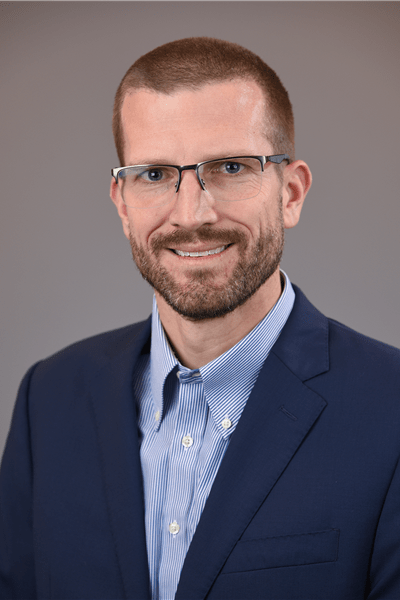
Steven S. Welc, PhD
Assistant Professor of Anatomy, Cell Biology & Physiology
- Phone
- (317) 274-7816
- Address
-
MS 332
ACBP
IN
Indianapolis, IN - PubMed:
-

Bio
Research in the Welc Lab focuses on understanding the molecular mechanisms that determine muscle homeostasis, regeneration, and remodeling. The focus of our investigations is on the regulatory interactions of myogenic and non-myogenic cells that determine skeletal and cardiac muscle health. We have a specific interest in the central role that the immune system plays in regulating muscle pathophysiology. Although immune cell populations in muscle can be complex, they are dominated by macrophages, which are present in low concentrations in healthy tissue but can rapidly accumulate in response to injury or disease. These are motile cells capable of highly-specific targeting to areas of pathology and can secrete an array of soluble factors that act directly on muscle cells to promote regeneration and growth. Macrophages are required for normal muscle repair, but can be misapplied in disease to orchestrate devastating pathological interactions with fibrogenic cells facilitating muscle fibrosis. Toward this end, our laboratory is also interested in the pathological role of fibroblasts in the progression of muscle disease. A major goal of our lab is to identify the mechanisms that promote or dysregulate the reparative processes of muscle and then build on that knowledge to develop novel therapeutics with translational implications in conditions of aging, acute trauma, modified-use and disease.
We recently reported a novel therapeutic strategy by which immune cells can be exploited as natural vectors to deliver therapeutic transgenes for the treatment of muscular dystrophy. Welc SS… Tidball JG et al. Targeting a therapeutic LIF transgene to muscle via the immune system ameliorates muscular dystrophy. Nat Comm, 10(1): 2788 (2019).
Key Publications
Welc S.S. Wehling-Henricks M. Antoun J. Ha T.T. Tous I. & Tidball J.G. (2020). Differential effects of myeloid cell PPARδ and IL-10 in regulating macrophage recruitment, phenotype, ang regeneration following acute muscle injury. J Immunol, 205(6), 1664-1677.
Welc S.S. Wehling-Henricks M. Kuro-o M. Thomas K.A. & Tidball J.G. (2020). Modulation of Klotho expression in injured muscle perturbs Wnt signaling and influence the rate of muscle growth. Exp Physiol, 105, 132-147.
Welc S.S. Flores I. Wehling-Henricks M. Ramos J. Wang Y. Bertoni C. & Tidball J.G. (2019). Targeting a therapeutic LIF transgene to muscle via the immune system ameliorates muscular dystrophy. Nat Commun, 10(1), 2788.
Wang Y. Welc S.S. Wehling-Henricks M. & Tidball J.G. (2018). Myeloid cell-derived tumor necrosis factor-alpha promotes sarcopenia and regulated muscle cell fusion with aging muscle fibers. Aging Cell, 17(6), e12828.
Wehling-Henricks* M. Welc* S.S. Samengo G. Rinaldi C. Lindsey C. Wang Y. Lee J. Kuro-o M. & Tidball J.G. (2018). Macrophages escape Klotho gene silencing in the mdx model of Duchenne muscular dystrophy and promote muscle growth and increase satellite cell numbers through a Klotho-mediated pathway. Hum Mol Genet, 27(1), 14-29. * Co-First Authors.
Tidball J.G., Welc S.S. & Wehling-Henricks M. (2018). Immunobiology of inherited muscular dystrophies. Compr Physiol, 8(4), 1313-56.
| Year | Degree | Institution |
|---|---|---|
| 2012 | PhD | University of Florida |
| 2008 | BS | University of North Carolina |
Duchenne Muscular Dystrophy
Muscle Pathophysiology
Muscle Immunobiology
Cardiac Remodeling
Muscle Growth and Regeneration
Muscle Fibrosis
Welc SS; Flores I; Wehling-Henricks M; Ramos J; Wang Y; Bertoni C; Tidball JG; Nature communications 2019 Jun 26
Welc SS; Wehling-Henricks M; Kuro-O M; Thomas KA; Tidball JG; Experimental physiology 2019 Dec 16
Wang Y; Welc SS; Wehling-Henricks M; Tidball JG; Aging cell 2018 Sep 6
Tidball JG; Welc SS; Wehling-Henricks M; Comprehensive Physiology 2018 Sep 14
Wehling-Henricks M; Welc SS; Samengo G; Rinaldi C; Lindsey C; Wang Y; Lee J; Kuro-O M; Tidball JG; Human molecular genetics 2018 Jan 1
Wang Y; Wehling-Henricks M; Welc SS; Fisher AL; Zuo Q; Tidball JG; FASEB journal : official publication of the Federation of American Societies for Experimental Biology 2018 Aug 21
Wehling-Henricks M; Li Z; Lindsey C; Wang Y; Welc SS; Ramos JN; Khanlou N; Kuro-O M; Tidball JG; Human molecular genetics 2016 May 6
Welc SS; Morse DA; Mattingly AJ; Laitano O; King MA; Clanton TL; PloS one 2016 Feb 12
Chadwick JA; Swager SA; Lowe J; Welc SS; Tidball JG; Gomez-Sanchez CE; Gomez-Sanchez EP; Rafael-Fortney JA; Human molecular genetics 2016 Dec 1
Tidball JG; Welc SS; Molecular therapy : the journal of the American Society of Gene Therapy 2015 Jul
Phillips NA; Welc SS; Wallet SM; King MA; Clanton TL; The Journal of physiology 2015 Jan 2
Welc SS; Judge AR; Clanton TL; American journal of physiology. Cell physiology 2013 May 1
Welc SS; Clanton TL; Dineen SM; Leon LR; Journal of applied physiology (Bethesda, Md. : 1985) 2013 Aug 8
Welc SS; Phillips NA; Oca-Cossio J; Wallet SM; Chen DL; Clanton TL; American journal of physiology. Cell physiology 2012 Jun 6
Welc SS; Clanton TL; Experimental physiology 2012 Aug 31
Desc: Postdoctoral Fellowship
Scope:
Date:
Desc: Postdoctoral Fellowship
Scope:
Date:
Desc: Oak Ridge Institute of Science and Education Fellowship
Scope:
Date:
Desc: Predoctoral Fellowship
Scope:
Date:
Desc: Environmental and Exercise Physiology Predoctoral Award
Scope:
Date:
Desc: Most Outstanding Student, Exercise Science
Scope:
Date: